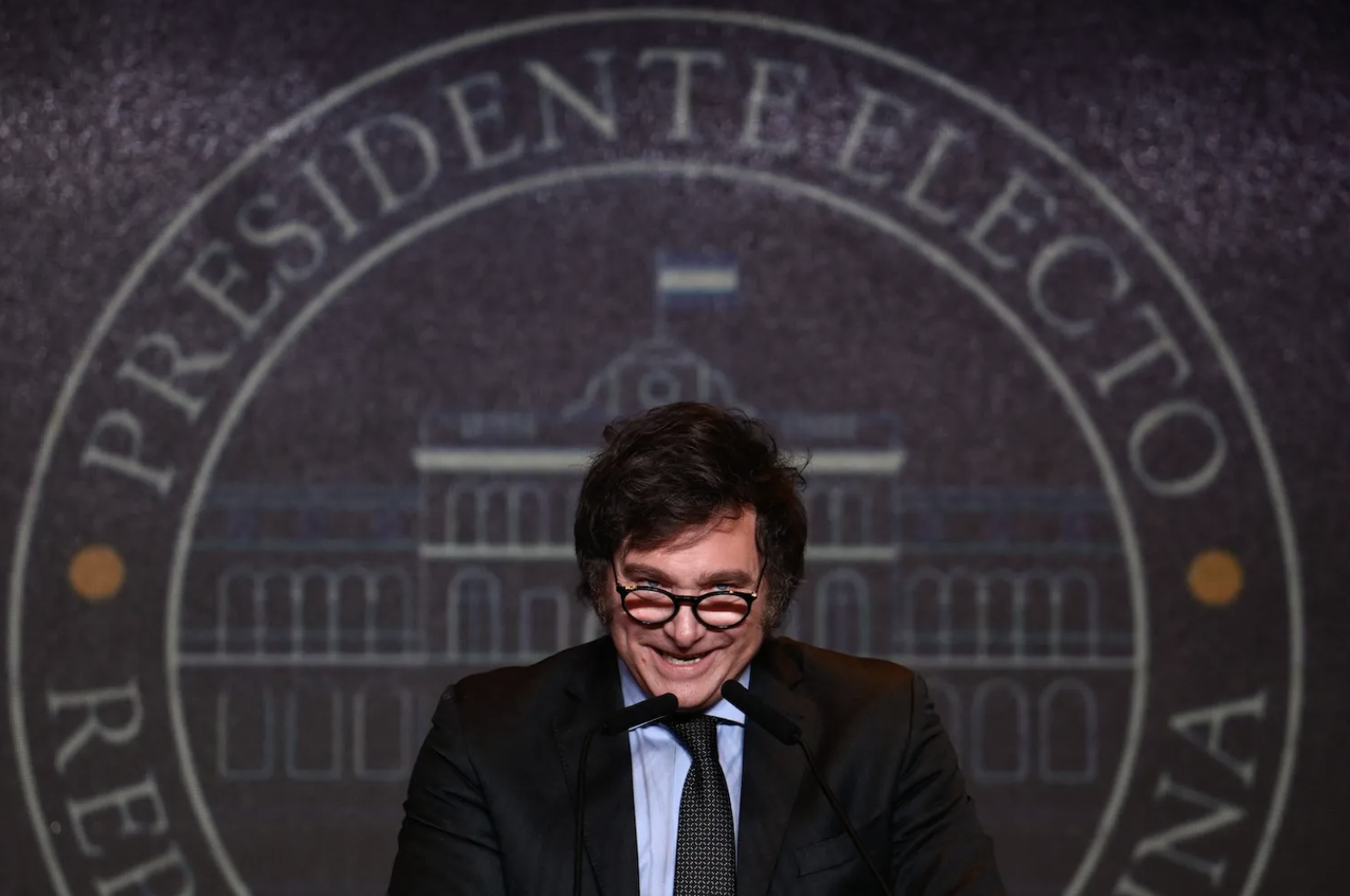The messianic president-elect may struggle to implement many of his most radical ideas.
By Oliver Stuenkel, an associate professor of international relations at the Getulio Vargas Foundation in São Paulo.
NOVEMBER 21, 2023
The radical libertarian candidate Javier Milei surfed an anti-establishment wave to comfortably win Argentina’s highly polarized presidential runoff on Nov. 19 with 55.7 percent of the votes. He will take over a country battered by the worst economic crisis in two decades, rising poverty levels and one of the highest inflation rates in the world. His opponent Sergio Massa, currently minister of the economy, obtained the most votes in the first round, but the country’s catastrophic economic situation was like a millstone around Massa’s neck during a runoff in which the majority of voters wanted change. Massa’s defeat was so decisive that he may not even have a mandate to lead the reconstruction of Peronism, a movement that has governed Argentina for 28 of the last 40 years.
Milei holds many extreme views. He believes climate change is a socialist hoax and that the mob violence of Jan. 6, 2021 in Washington, D.C. and Jan. 8, 2023 in Brazil’s capital, Brasília, had nothing to do with former U.S. and Brazilian Presidents Donald Trump and Jair Bolsonaro, respectively. Many of his proposals are highly controversial, such as closing Argentina’s central bank and dollarizing the economy; privatizing education; eliminating all gun laws; criminalizing abortion; legalizing…
Read full article









